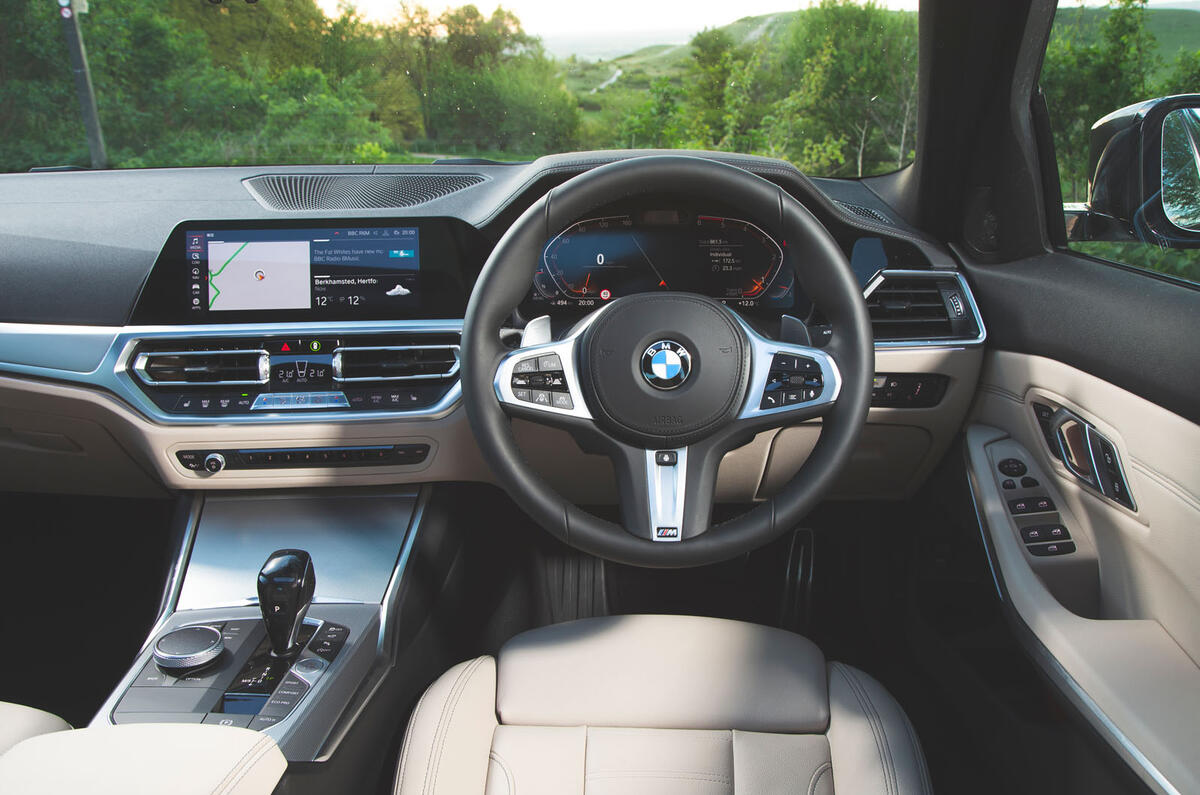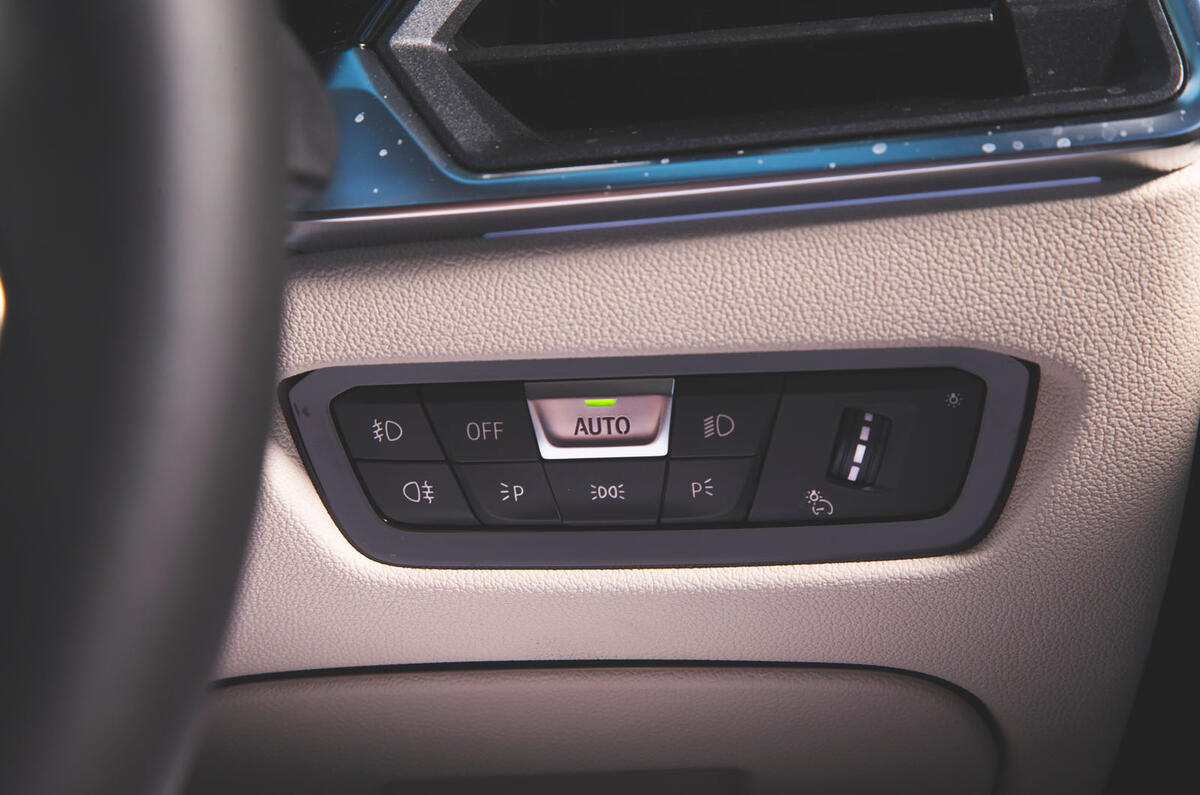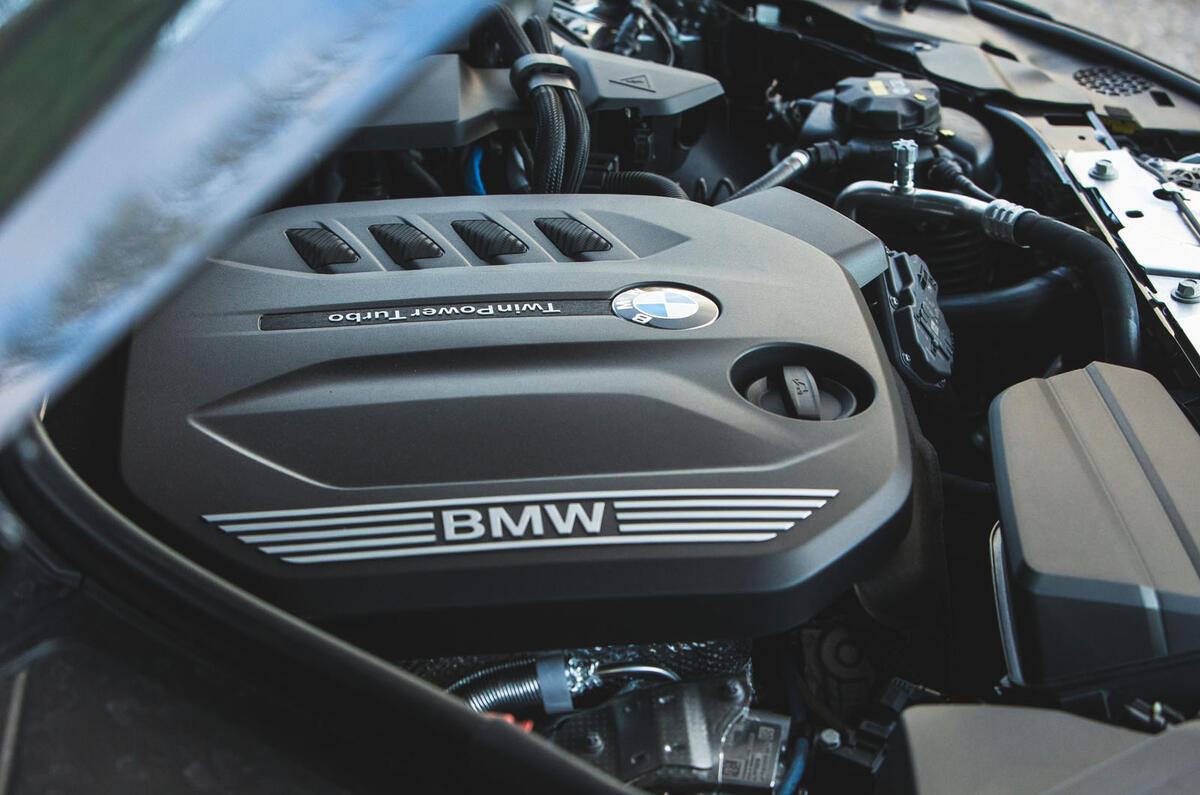BMW’s sequential turbocharging makeover for the 320d’s four-cylinder engine has yielded improvements to the car’s performance almost across the board. When you consider that the outgoing F30-generation 320d remained such a competitive act on both acceleration and efficiency even in the last years of its life, you can probably guess how strong a position that puts the G20 in here.
It’s very rare, for example, to see standing-start pace from a car with any four-cylinder diesel engine strong enough to deliver a 0-60mph time beginning with a six. The 320d manages it alright, sprinting to 60mph from rest in just 6.9sec, where the original E30 M3 only managed it in 6.1sec, and most four-pot diesels in this class still need 7.5-8.5sec.
BMW’s official claim for 0-62mph is 6.8sec but, given our figures are recorded with two occupants on board and a full tank of fuel, we can easily believe that claim would be credible in optimal conditions.
In-gear acceleration and performance flexibility is equally strong. The 320d’s engine has only very occasional moments of hesitation when its eight-speed gearbox has to orchestrate a hurried ratio change before it can respond to a biggish throttle input – but, by the standards of most eight- and nine-speed automatic transmissions, this one is pleasingly decisive and makes for easy drivability. Catch the powertrain while it’s already hooked up, meanwhile, and it provides plenty of mid-range thrust in the middle and lower ratios, while it also revs more freely beyond 4000rpm than even the last 320d’s engine – which was already freer-breathing than most.




















































